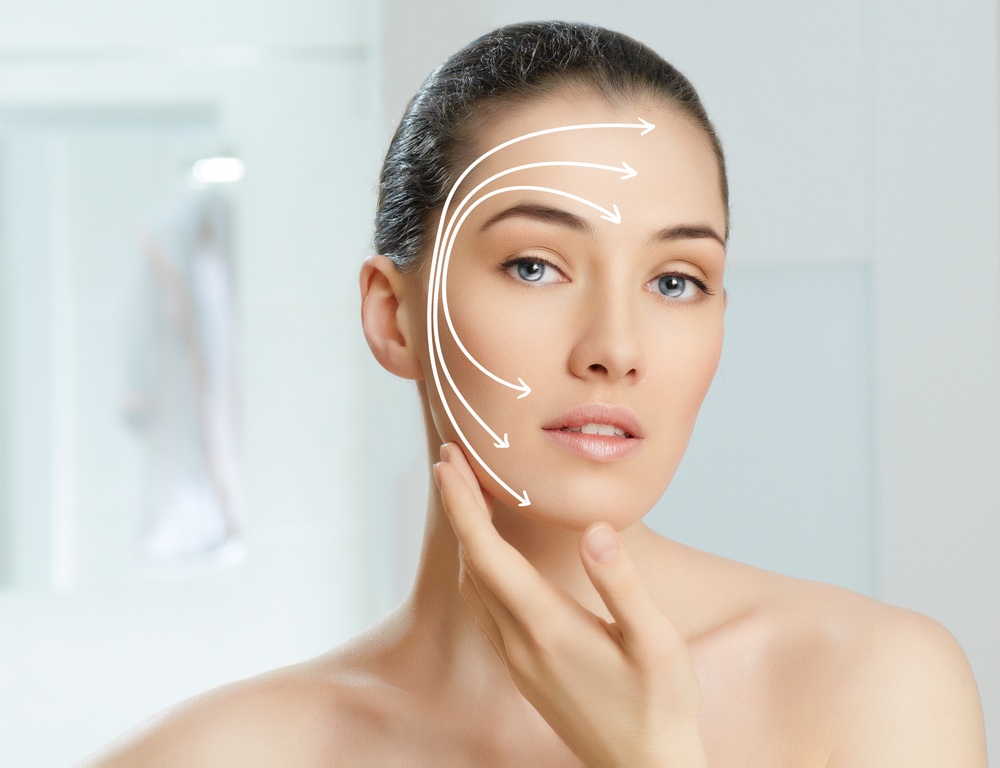Eating a healthy plant-based diet with lean meats or vegan sources of protein is important for healthy skin. However, taking supplements can make a difference to your skin.
Collagen
Collagen production starts slowing down in our twenties – and by age 45 we will have lost as much as 40 percent. However, it’s not as simple as taking collagen supplements to get plump skin. We don’t know how much any supplement survives beyond stomach acid, which means we may not be absorbing much. Therefore, applying a daily moisturiser containing collagen is a good way to get it directly onto your skin. Stick to products containing natural marine collagen, which are much better for your skin than a synthetic source of collagen.
‘Collagen is the most abundant natural protein in our bodies and one of the key building block of our skin, hair and nails.’
Eat more Protein
Protein helps to slow the digestive process and control blood sugar levels, which helps to keep you fuller for longer. Eating too much sugar or processed carbohydrates causes our blood sugar levels to spike. Stress can also cause blood sugar fluctuations as it increases cortisol. Under stressful conditions, cortisol provides the body with glucose by tapping into protein stores via gluconeogenesis in the liver. This energy can help an individual fight or flee a stressor. However, elevated cortisol over the long term consistently produces glucose, leading to increased blood sugar levels.
When blood sugar is elevated over a period of time, your body loses fluid and your skin becomes dehydrated, dry, cracked and itchy.
Omega 3, 6 and 9
Omega fatty acids contain properties which are effective at easing dry skin, eczema and psoriasis.
Probiotics
Probiotics are important for our immune system and skin health as they introduce beneficial bacteria into the intestinal system. Probiotics improve the digestion of food, which means we get more nutrients from the foods we eat.
Vitamin B
If you want to achieve a clear complexion, you need to ensure that you’re including Vitamin B-rich foods in your diet or taking a supplement. Vitamin B3, B5 and B12 are important for skin health. It’s important to check with your Doctor before taking supplements as certain Vitamins shouldn’t be used in large doses. For example, Vitamin B6 (Pyridoxine hydrochloride) can be dangerous when used in large amounts or for a long time.
Vitamin C
Vitamin C supports collagen formation. It is a powerful antioxidant which protects from damaging free radicals which age the skin.
Zinc
Helps support immune function and healthy skin. This is an essential mineral supplement for anyone with hair loss, brittle nails or skin conditions.
Avoid Eating Processed Foods
Process foods contain many synthetic additives, such as colours, flavour enhancers, and preservatives. They also contain high levels of salt and sugar which speeds up ageing of skin. Having the occasional desert or other indulgence is fine as long as we eat them in moderation and balance it out with natural plant based foods. Eating a piece of dark chocolate after dinner is a good way to manage cravings as it contains less sugar than milk chocolate and white chocolate.
Disclaimer
This website is not a substitute for independent professional advice. Nothing contained in this site is intended to be used as medical advice and it is not intended to be used to diagnose, treat, cure or prevent any disease, nor should it be used for therapeutic purposes or as a substitute for your own health professional’s advice.





romantik69
Good post. I learn something totally new and challenging on websites I stumbleupon on a daily basis. It will always be useful to read content from other authors and use something from their websites.
Jane
Great article!